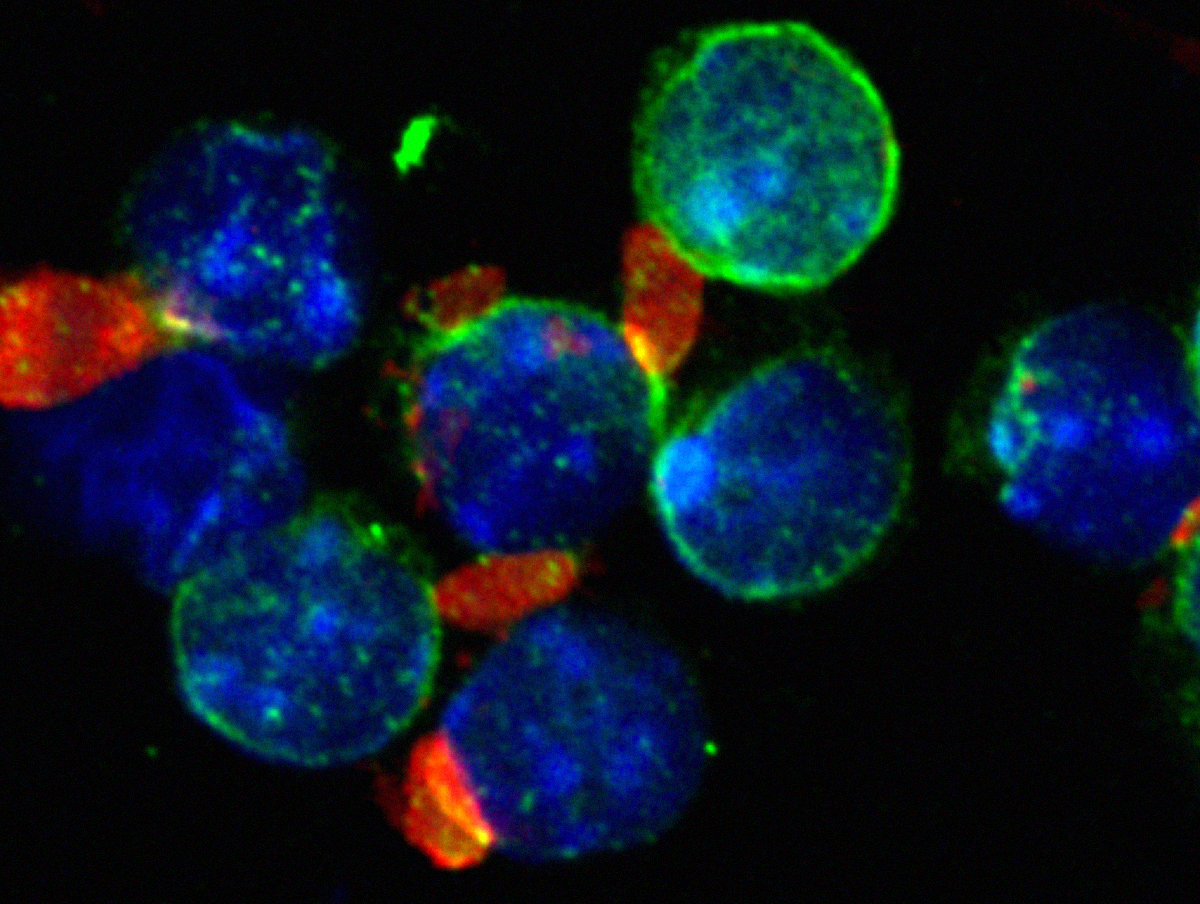Immunobiology
ABOUT
The Immunobiology group mainly studies the immune response elicited by human and veterinary pathogens aiming at developing immune-based approaches to prevent infectious diseases and deleterious consequences of infection. Studied infections include those caused by Staphylococcus epidermidis, Group B Streptococcus, Candida spp., Mycobacteria and Neospora caninum.
RESEARCH
The group developed a vaccination strategy to achieve protection against GBS infection that may be also effective in protecting against a wide range of bacterial neonatal infections. This strategy is based on antibody-mediated neutralization of bacterial GAPDH.
Several patents were registered concerning this approach and a spin-off (Immunethep) was started.
By using a different immunization strategy, the group is also working in mucosal vaccination against bovine neosporosis, the disease caused by the protozoan N. caninum. The vaccination approach used N. caninum membrane proteins as target antigens and proved effective in the murine model by protecting against infections established by the intragastric route or systemically.
Over the last years the group has made several contributions concerning the understanding of the host immune response to S. epidermidis biofilm cells and immune evasion mechanisms related to the biofilm mode of growth. The Immunobiology team also developed experimental tools that helped characterize S. epidermidis biofilms and biofilm cells physiology.
Other ongoing studies of the group concern the management/prevention of infections caused by Candida species or its immune-mediated inflammatory consequences. These studies include antibody- and nanoparticle-based approaches aimed at interfering with host-pathogen interactions.
The group continues to dissect mycobacterial immune pathology using a mouse model of Mycobacterium avium infection.

Team
Selected Publications
TNF-mediated compensatory immunity to mycobacterium avium in the absence of macrophage activation by IFN-γ. Journal of Immunology203(9):2451-2458, 2019. [Journal: Article] [CI: 5] [IF: 4,9]
DOI: 10.4049/jimmunol.1801594 SCOPUS: 85073667502
Dias A.M., Correia A., Pereira M.S., Almeida C.R., Alves I., Pinto V., Catarino T.A., Mendes N., Leander M., Teresa Oliva-Teles M., Maia L., Delerue-Matos C., Taniguchi N., Lima M., Pedroto I., Marcos-Pinto R., Lago P., Reis C.A., Vilanova M., Pinho S.S.
Metabolic control of T cell immune response through glycans in inflammatory bowel disease. Proceedings of the National Academy of Sciences of the United States of America115(20):E4651-E4660, 2018. [Journal: Article] [CI: 99] [IF: 9,6]
DOI: 10.1073/pnas.1720409115 SCOPUS: 85046964805
Andrade E.B., Magalhães A., Puga A., Costa M., Bravo J., Portugal C.C., Ribeiro A., Correia-Neves M., Faustino A., Firon A., Trieu-Cuot P., Summavielle T., Ferreira P.
A mouse model reproducing the pathophysiology of neonatal group B streptococcal infection. Nature Communications9(1):, 2018. [Journal: Article] [CI: 54] [IF: 11,9]
DOI: 10.1038/s41467-018-05492-y SCOPUS: 85051277907
Resende M., Cardoso M.S., Ribeiro A.R., Flórido M., Borges M., Gil Castro A., Alves N.L., Cooper A.M., Appelberg R.
Innate IFN-γ-Producing cells developing in the absence of IL-2 receptor common γ-chain. Journal of Immunology199(4):1429-1439, 2017. [Journal: Article] [CI: 10] [IF: 4,5]
DOI: 10.4049/jimmunol.1601701 SCOPUS: 85027298608
Ferreirinha P., Pérez-Cabezas B., Correia A., Miyazawa B., França A., Carvalhais V., Faustino A., Cordeiro-da-Silva A., Teixeira L., Pier G., Cerca N., Vilanova M.
Poly-N-acetylglucosamine production by Staphylococcus epidermidis cells increases their in vivo proinflammatory effect. Infection and Immunity84(10):2933-2943, 2016. [Journal: Article] [CI: 11] [IF: 3,6]
DOI: 10.1128/IAI.00290-16 SCOPUS: 84994337344
Teixeira L., Marques R.M., Ferreirinha P., Bezerra F., Melo J., Moreira J., Pinto A., Correia A., Ferreira P.G., Vilanova M.
Enrichment of IFN-γ producing cells in different murine adipose tissue depots upon infection with an apicomplexan parasite. Scientific Reports6:, 2016. [Journal: Article] [CI: 18] [IF: 4,3]
DOI: 10.1038/srep23475 SCOPUS: 84961589792
Appelberg R., Moreira D., Barreira-Silva P., Borges M., Silva L., Dinis-Oliveira R.J., Resende M., Correia-Neves M., Jordan M.B., Ferreira N.C., Abrunhosa A.J., Silvestre R.
The Warburg effect in mycobacterial granulomas is dependent on the recruitment and activation of macrophages by interferon-γ. Immunology145(4):498-507, 2015. [Journal: Article] [CI: 44] [IF: 4,1]
DOI: 10.1111/imm.12464 SCOPUS: 84936175105
Ferreira S.S., Passos C.P., Madureira P., Vilanova M., Coimbra M.A.
Structure-function relationships of immunostimulatory polysaccharides: A review. Carbohydrate Polymers132:378-396, 2015. [Journal: Review] [CI: 896] [IF: 4,2]
DOI: 10.1016/j.carbpol.2015.05.079 SCOPUS: 84934765169
Correia A., Ferreirinha P., Botelho S., Belinha A., Leitão C., Caramalho I., Teixeira L., González-Fernandéz A., Appelberg R., Vilanova M.
Predominant role of interferon-γ 3 in the host protective effect of CD8 + T cells against Neospora caninum infection. Scientific Reports5:1-14, 2015. [Journal: Article] [CI: 18] [IF: 5,2]
DOI: 10.1038/srep14913 SCOPUS: 84943770641
Madureira P., Andrade E.B., Gama B., Oliveira L., Moreira S., Ribeiro A., Correia-Neves M., Trieu-Cuot P., Vilanova M., Ferreira P.
Inhibition of IL-10 production by maternal antibodies against group b streptococcus GAPDH confers immunity to offspring by favoring neutrophil recruitment. PLoS Pathogens7(11):, 2011. [Journal: Article] [CI: 47] [IF: 9,1]
DOI: 10.1371/journal.ppat.1002363 SCOPUS: 81755177757


